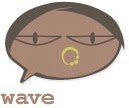A Call for Papers on UN SC Resolution 1325
WILPF invites submission of papers on a broad range of issues around the implementation of 1325, as part of the Women, Peace and Security: From Resolution to Action Geneva High-Level Consultation 15-16 September 2010, Geneva.
Papers can address gender/women in conflict or post-conflict; the implementation of SCR 1325; and/or women in the context of protection, conflict prevention and participation.
Content can be presented as analysis, critiques, good practice, lessons learnt, case studies and/or campaigns.
Papers can also be formatted as articles, case studies or toolkits. Word limit 10,000.
Deadline: 20 August 2010
Please submit to 1325papers@wilpf.ch and provide the following information:
Name:
Institution/Organisation:
Title of Paper:
Country:
Particular themes include (please note compulsory to highlight in submission):
Early warning
Peace-Processes
Participation
Representation/Peace-Processes
Participation
Representation/Participation
Political Participation
Peace Keeping (including Sexual Exploitation and Abuse and Gender Training)
Civil Society Activities/Women Organising for Peace
Human Rights (including Socio-Economic rights/development; Racial and Ethnic Discrimination; International and Regional Instruments and Mechanisms)
Demobilisation, Disarmament, Repatriation, Resettlement and Reintegration (DDRRR)
Small Arms and Light Weapons
Landmines
Violence against women
Displacement
Humanitarian Assistance
Health (including HIV/AIDS and Reproductive Health)
UN Implementation
National Implementation (including NAPs)
All relevant registered papers will be published as part of a Literature Repository on http://www.peacewomen.org/.
Please use the following links for more information -
WILPF 1325+10 anniversaryWomen, Peace and Security: from Resolution to Action Geneva Consultation
Context
The year 2010 marks the 10th anniversary of the UN Security Council Resolution 1325 on women, peace and security. Building on the commitments of the Beijing Declaration and Platform for Action (adopted at the 4th World Conference on Women), the resolution acknowledged for the first time the important role of women in the prevention and resolution of conflicts and in peace building, and the importance of their equal participation and full involvement in all efforts for the maintenance and promotion of peace and security.
As part of resolution 1325 celebrations, a high level Ministerial debate is due to take place at the Security Council in New York in October. The debate will focus on reviewing the implementation of resolution 1325 and subsequent resolutions, as well as examining ways to further enhance their impact.
To ensure input at this ministerial debate the European Union and Belgium (who will hold the Presidency from July 2010) have planned three events. These events in Brussels, Geneva and New York are focused around the three pillars of the resolution 1325: participation (Brussels), protection (Geneva) and prevention (New York).
Women, Peace and Security: from resolution to action, the Geneva Consultation will be held on the 15 and 16 September 2010 and will focus on protection. It is organized by the Belgium mission and the EU Delegation, in partnership with relevant UN agencies and NGOs. It will be coordinated by UNDP, UNHCR, with the support of UNITAR and the Women’s International League for Peace and Freedom. The Conference will bring together representatives from EU Member States, UN organizations and NGOs, from humanitarian, human rights and security domains.

 Introduction:
Introduction: